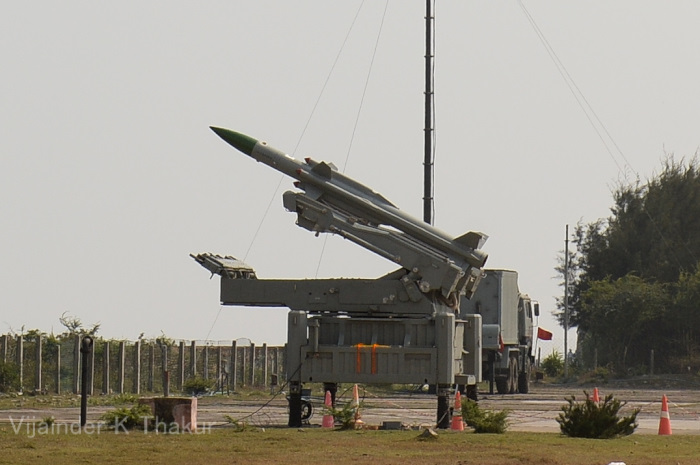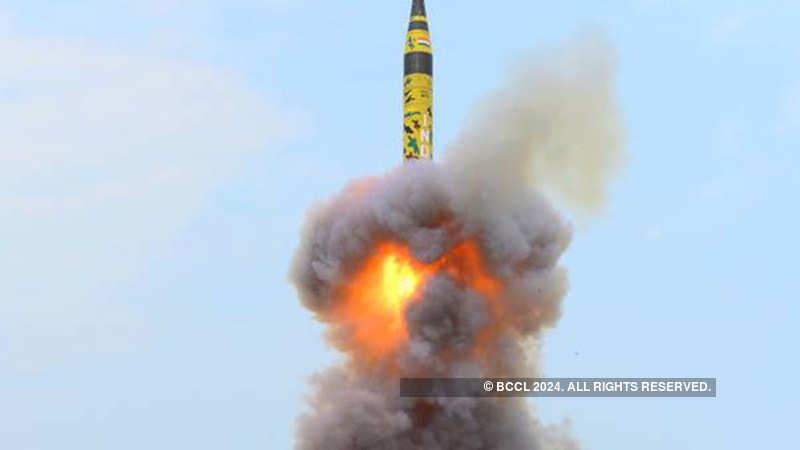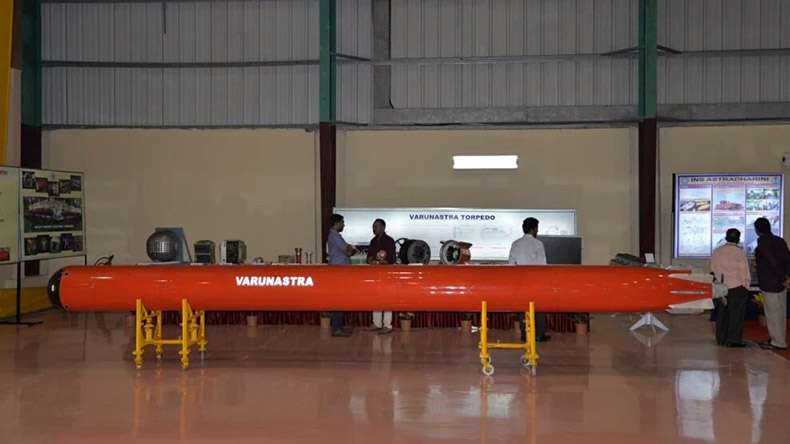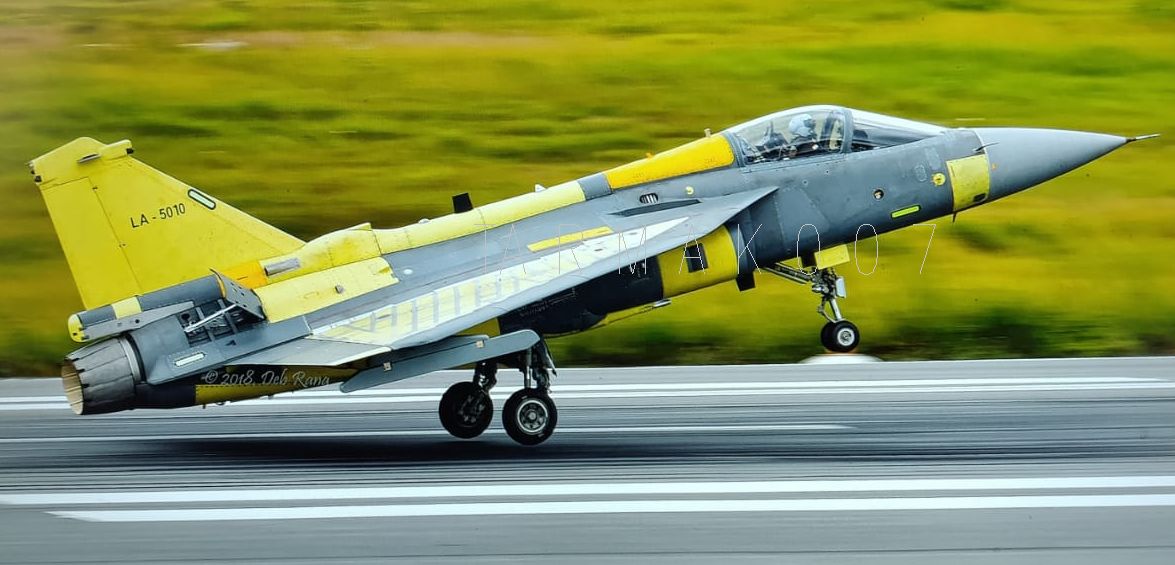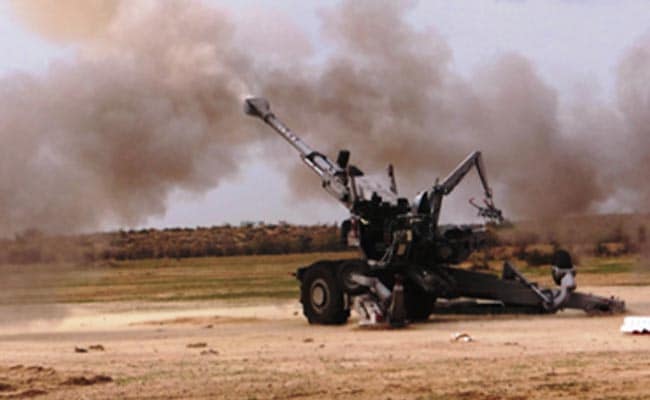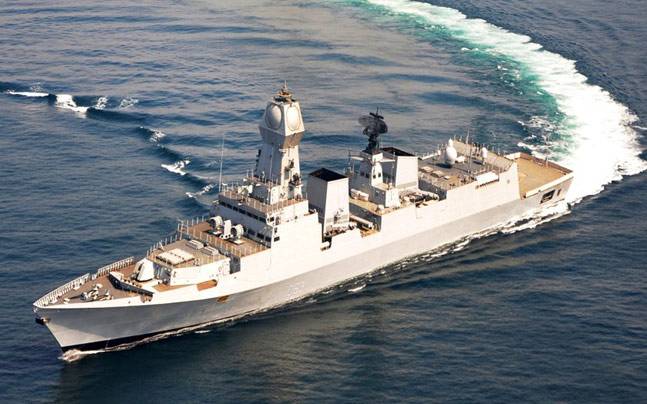Anti Tank SANT missile test fired with MMW seeker with high accuracy and very long range.
Behold
@DRDO_India
's Standoff anti-tank missile or SANT, which is equipped with a MMW seeker being launched from an IAF Mi-35 during tests.
#MoDAnnual2019

5:49 PM · Jul 26, 2019·
Twitter Web App
Advance Light Towed Array Sonar (ALTAS): ALTAS is an
efficient sensing system for detection, localization and
classification of submarines operating especially in the
below surface layer ocean conditions. It is useful in Anti-
Submarine Warfare (ASW) operations and is the apt
sensor for warships to locate silent submarines capable
of launching high speed torpedoes. User Evaluation
Trials of the system onboard INS Sharda has been
completed satisfactorily.
Medium Altitude Long Endurance (MALE) Unmanned
Aerial Vehicle (UAV) ‘TAPAS BH’: TAPAS-BH, a multimission
UAV is being developed with an endurance
of 24 hours to carry out the intelligence, surveillance
and reconnaissance (ISR) roles for the three Armed
Forces. It is being designed to operate at 30,000 ft
Above Mean Sea Level (AMSL) altitude and is capable
of carrying Electronic Warfare and Electro-Optic &
Synthetic Aperture Radar (EO & SAR) payloads. It can
carry a variety of other payloads weighing up to 350 kg.
The flights with High Power Engine (HPE) commenced
in February, 2018. During January, 2018 – March, 2019,
39 flight trials using airframe AF5 (with HPE) have
been completed (total 50 flight trials completed since
the maiden flight in November, 2016). Flight trials on
airframe AF6 also commenced in January, 2019 and as
on date, 9 flight trials have been conducted. Indigenous
SATNAV INS system, indigenous payloads (GPA Mk-IV,
MREO) and imported payloads (SATCOM, LREO, ELINT&
SAR) has also been tested during these trials. The
payload was able to localize radars successfully.
Active Electronically Scanned Array Radar (AESAR)
‘Uttam’: AESAR ‘Uttam’ is an airborne fire control radar
for our indigenous fighter aircraft LCA ‘Tejas’. It is a
multi-mode radar which can be configured for fitment
on different airborne platforms. Shake down sorties
were completed in January, 2019 on modified executive
Jet hired. Indigenous AESA radar integration and EMI/
EMC tests on LCA ‘Tejas’ LSP2 aircraft are nearing
completion and flight evaluation is planned shortly.
Nothing next generational about these except Torpedo range ( which could very well be a typo). All these techs are mature in some countries.
No it is not typo. Educate yourself about it.

 Saurav JhaVerified account @SJha1618 Jul 26
Saurav JhaVerified account @SJha1618 Jul 26 Saurav JhaVerified account @SJha1618 Jul 26
Saurav JhaVerified account @SJha1618 Jul 26






